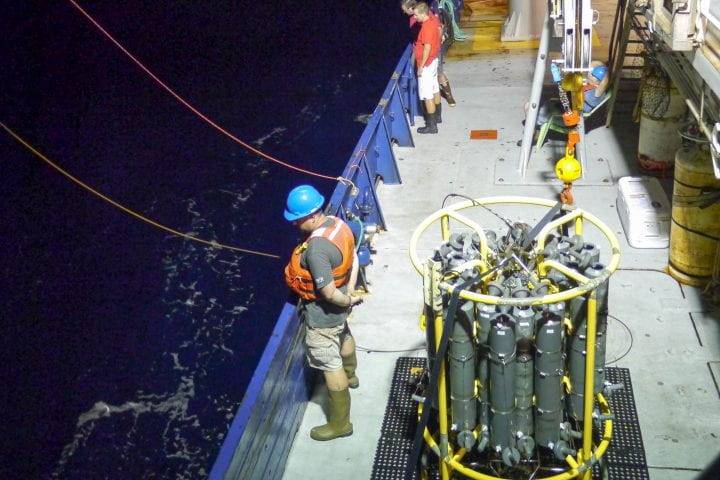University of California, Irvine researchers have reported evidence that marine nutrient cycles – essential for sustaining ocean ecosystems – are changing in unexpected ways as the planet continues to warm.
“Model studies have suggested that when the ocean warms it gets more stratified, which can drain certain parts of the surface ocean of nutrients,” said Professor Adam Martiny, one of the study’s lead authors.
Although models suggest a connection between ocean temperatures and surface ocean nutrients, this is the first study to confirm climate change’s impacts on nutrient cycles.
The team, led by graduate student Skylar Gerace, analyzed 50 years of nutrient data from the ocean collected as part of the Global Ocean Ship-based Hydrographic Investigations Program (GO-SHIP). They discovered that over the last half century, there’s been a major decline in phosphorus – a nutrient that plays a key role in the health of marine food webs – in southern hemisphere oceans.
There can be cascading effects up the food web, said Gerace, as plankton forms the basis of many marine food webs.
Concentrations of nitrate – a nutrient the team expected to decline – appear to remain steady. Nitrate is crucial for ecosystem functioning, so that it’s not in decline is a good sign, Martiny explained.
Martiny emphasized the importance of programs like GO-SHIP when it comes to doing science like this; without seafaring missions that collect empirical data on marine ecosystems, there would be no way to confirm if what the climate models are forecasting is actually happening. For instance, models have forecasted that there would by now be declining nitrate levels in ocean water, but direct observations reveal that this is not the case.
Next, the team wants to quantify how changing nutrient cycles impact marine ecosystems in both hemispheres as climate change continues unfolding.

